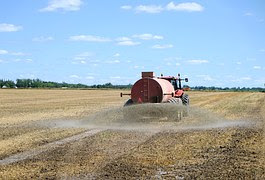Biofertilizers Market: Nitrogen Fixing Biofertilizers to Rise owing to their Inexpensive and Environment-friendly Nature
Bio-fertilizers are micro-organisms that help crop development by
increasing the nutrient content of the soil the crops are grown in.
Biofertilizers are suitable substitutes to chemical fertilizers, as
chemical fertilizers inhibit plant growth along with polluting the
environment by the emission of harmful chemicals. In addition,
biofertilizers also help destroy hazardous components within the soil
and protect plants against drought. All in all, biofertilizers are
inexpensive, effective even in semi-arid conditions, enhance the texture
of soil, and increase the plant yield by 15% to 35%. The rise in
environmental hazards within agriculture due to the excessive
utilization of chemical fertilizers and the assistance from regulatory
bodies and government in the form of numerous policies issued in favor
of biofertilizers production are amongst the prime factors fuelling the
market for biofertilizers.
Browse the full Global Biofertilizers Market Report: http://www.mrrse.com/biofertilizers-market
There are primarily three types of biofertilizers used to enhance the crop yield, namely nitrogen fixing biofertilizers, phosphorus biofertilizers, and others. Amongst these, nitrogen fixing biofertilizers assist farmers in determining the amount of nitrogen level in the soil, as nitrogen is a very important component for plant growth. Plants require a limited quantity of nitrogen to help them grow and the quantity also varies from crop to crop owing to the fact that different crops require different quantities of nitrogen for their proper growth.
TMR, a market intelligence company, throws light on the major types of nitrogen fixing biofertilizers along with their respective application areas.
The prime players operating in the market for biofertlizers include GRI- Life, Antibiotice S.A., Gujrat State Fertilizers & Chemical Ltd., Novozymes, Lallemand Inc., Madras Fertilizers Ltd., National Fertilizers Ltd., and Symborg S.L., among others.
Browse the full Global Biofertilizers Market Report: http://www.mrrse.com/biofertilizers-market
There are primarily three types of biofertilizers used to enhance the crop yield, namely nitrogen fixing biofertilizers, phosphorus biofertilizers, and others. Amongst these, nitrogen fixing biofertilizers assist farmers in determining the amount of nitrogen level in the soil, as nitrogen is a very important component for plant growth. Plants require a limited quantity of nitrogen to help them grow and the quantity also varies from crop to crop owing to the fact that different crops require different quantities of nitrogen for their proper growth.
TMR, a market intelligence company, throws light on the major types of nitrogen fixing biofertilizers along with their respective application areas.
- Free Living Nitrogen Fixing Bacteria: These bacteria freely live within the soil and are responsible for nitrogen fixation. Examples of these include Bacillus polymyxa, Azotobacter, Clostridium, and Beijerinckia. The nitrogen fixation property is also seen in photoautotrophic bacteria such as Rhodopseudomonas, Chromatium, and Rhodospirillum. They are primarily used in the fields of cotton, rice, jowar, and maize.
- Free Living Nitrogen Fixing Cyanobacteria: These biofertilizers are blue-green algae or cyanobacteria having nitrogen fixation properties. Examples of such biofertilizers include Nostoc, Anabaena, Aulosira, Cylindrospermum, Totypothrix, and Stigonema. Cyanobacteria are photosynthetic and hence add organic matter and extra nitrogen into the soil. Amongst these, Aulosira is the most active nitrogen fixer in the rice fields of India.
- Loose Association of Nitrogen Fixing Bacteria: These bacteria surround the roots of high plants and gather some amount of plant exudate, utilizing the same as food. These bacteria fix nitrogen as well as exude the fixed nitrogen’s part for utilization by the plant.
- Symbiotic Nitrogen Fixing Bacteria: Symbiotic nitrogen fixing bacteria obtain their shelter and food from plants. These bacteria in return provide a share of their fixed nitrogen to plants. The best example of such bacteria is Rhizobium. Cowpea Rhizobium is only able to fix nitrogen while present in root nodules.
The prime players operating in the market for biofertlizers include GRI- Life, Antibiotice S.A., Gujrat State Fertilizers & Chemical Ltd., Novozymes, Lallemand Inc., Madras Fertilizers Ltd., National Fertilizers Ltd., and Symborg S.L., among others.


Comments
Post a Comment